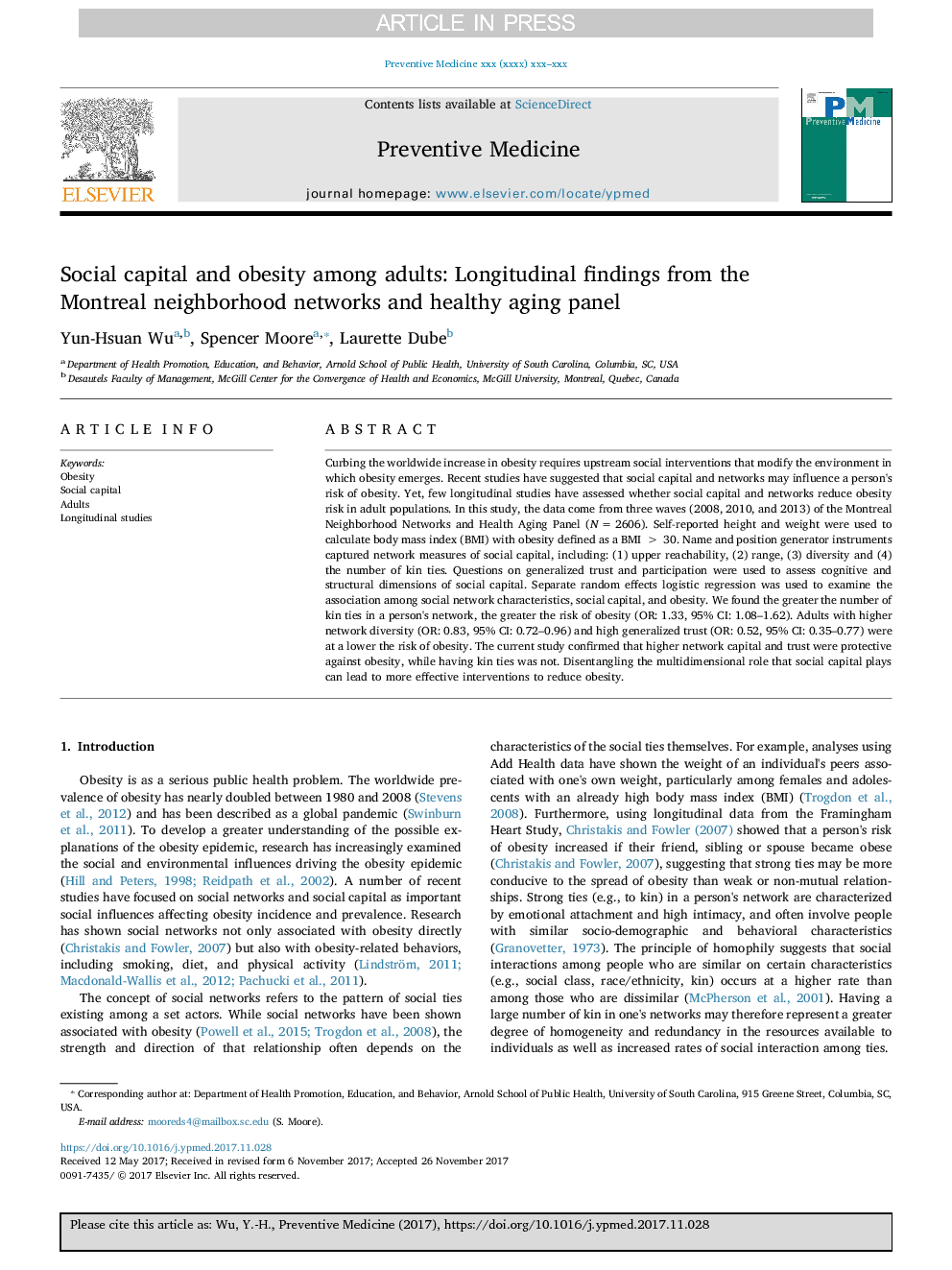ترجمه فارسی عنوان مقاله
سرمایه اجتماعی و چاقی در میان بزرگسالان: یافته های طولی از شبکه های محله مونترال و پنل سالم پیری
عنوان انگلیسی
Social capital and obesity among adults: Longitudinal findings from the Montreal neighborhood networks and healthy aging panel
| کد مقاله | سال انتشار | تعداد صفحات مقاله انگلیسی |
|---|---|---|
| 87638 | 2017 | 5 صفحه PDF |
منبع

Publisher : Elsevier - Science Direct (الزویر - ساینس دایرکت)
Journal : Preventive Medicine, Available online 29 November 2017
ترجمه کلمات کلیدی
چاقی، سرمایه اجتماعی، بزرگسالان مطالعات طولی،
کلمات کلیدی انگلیسی
Obesity; Social capital; Adults; Longitudinal studies;

